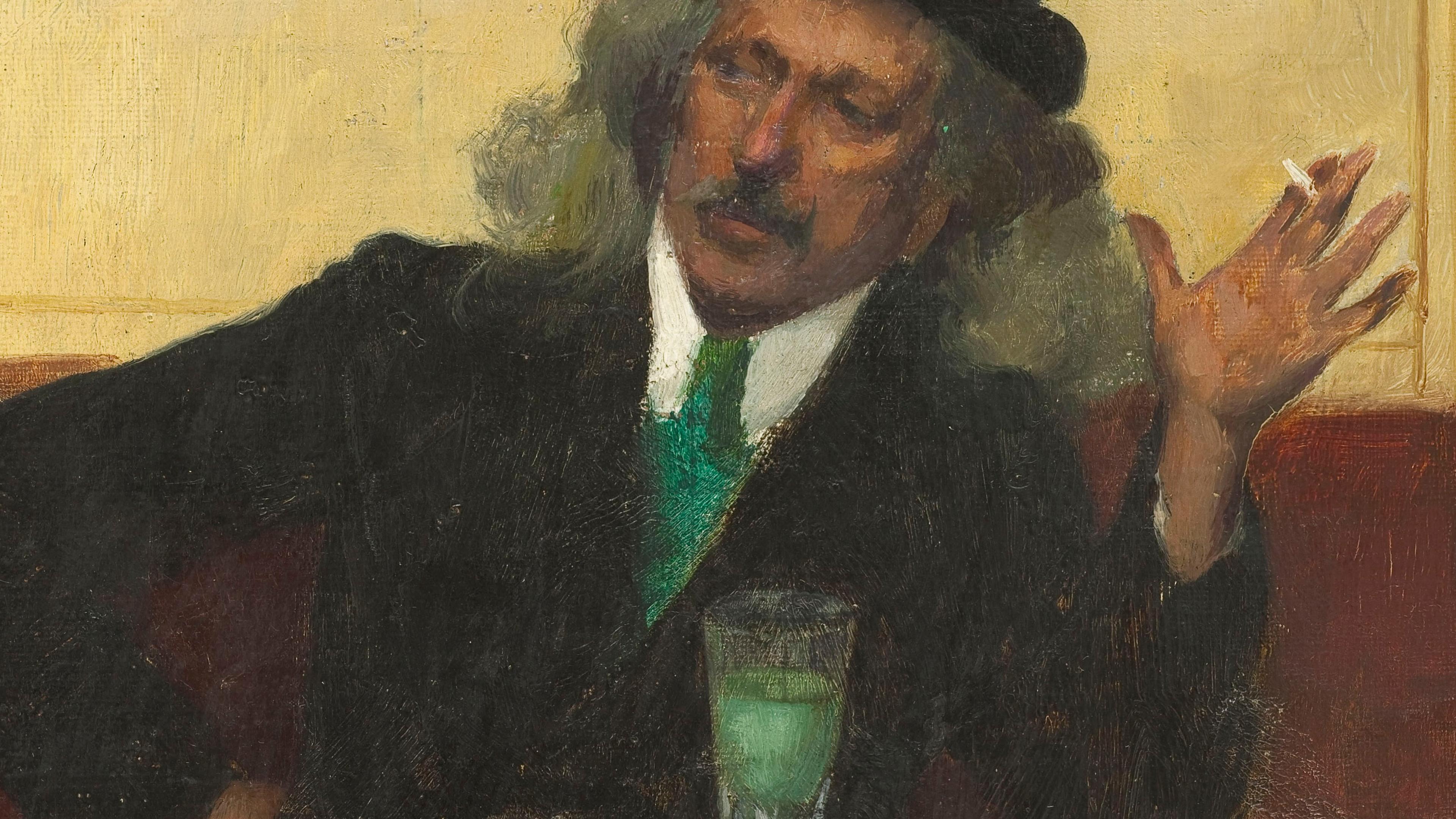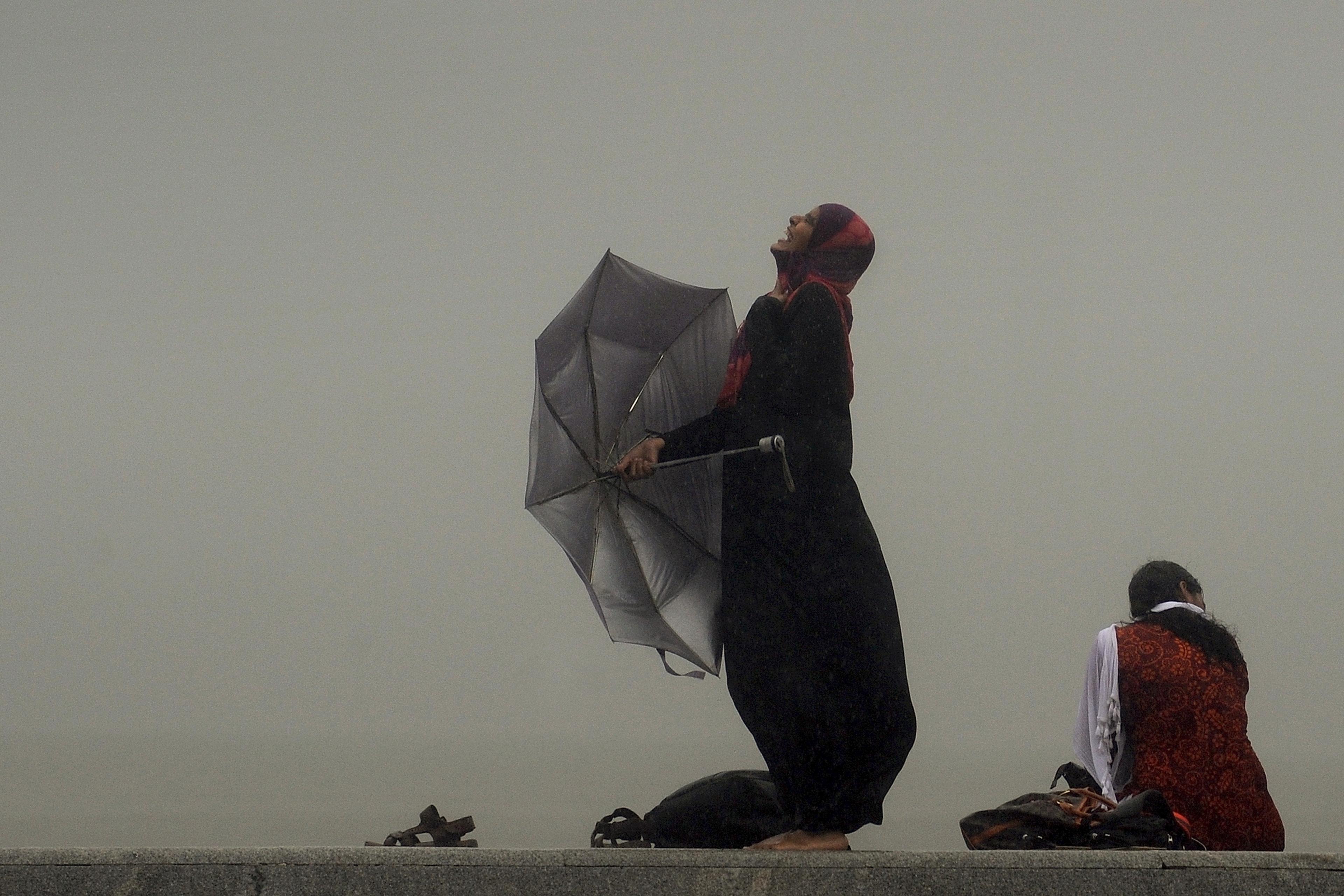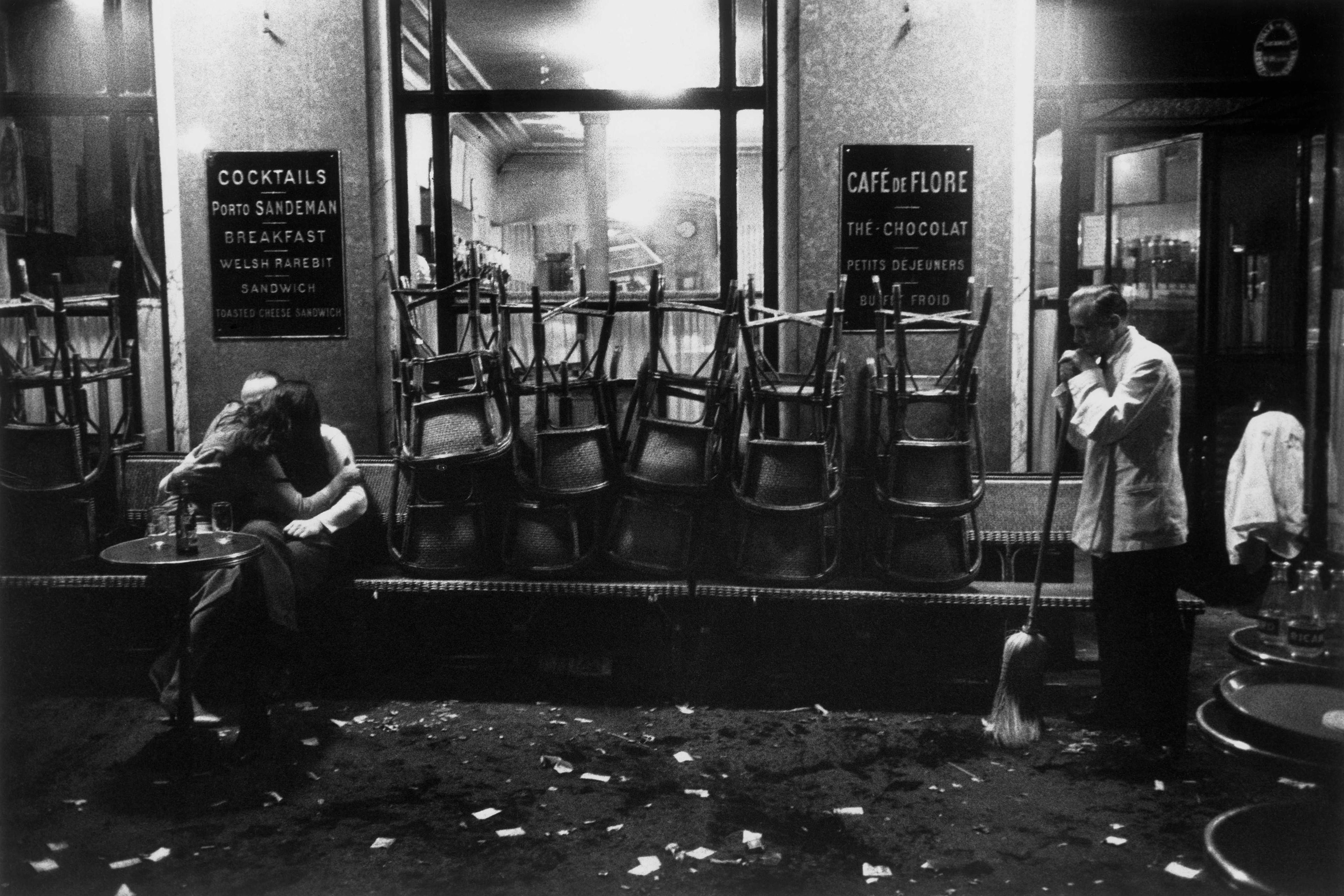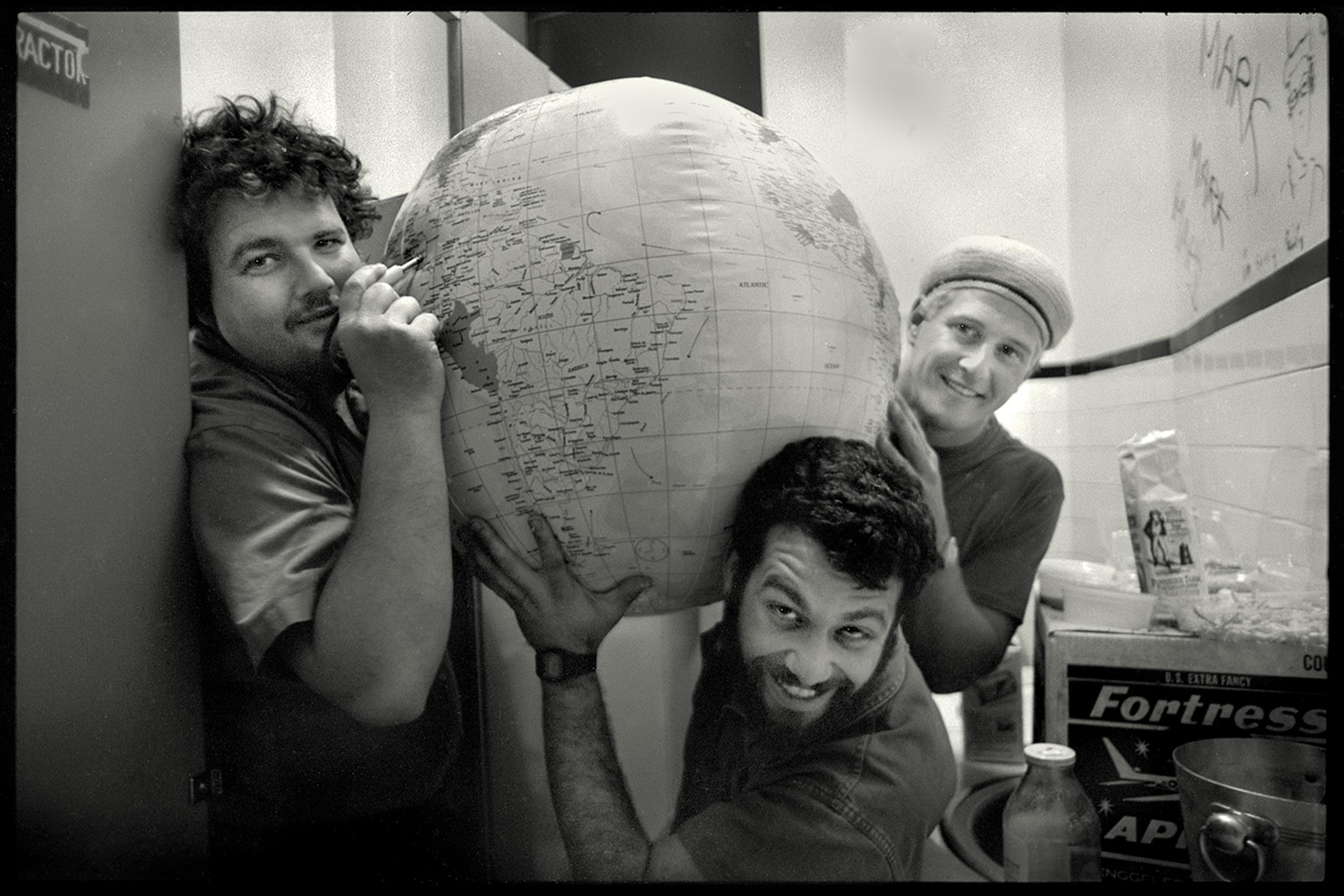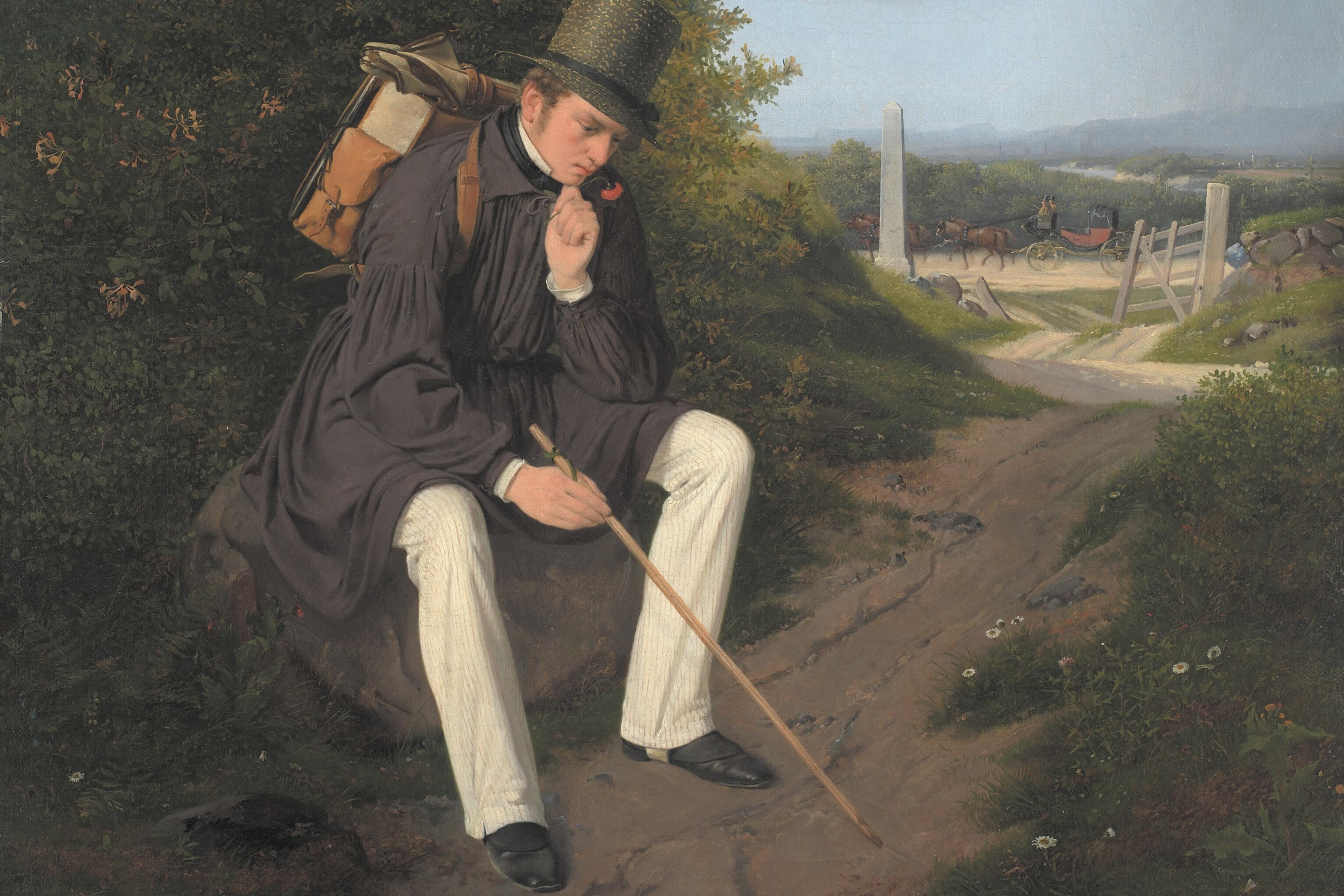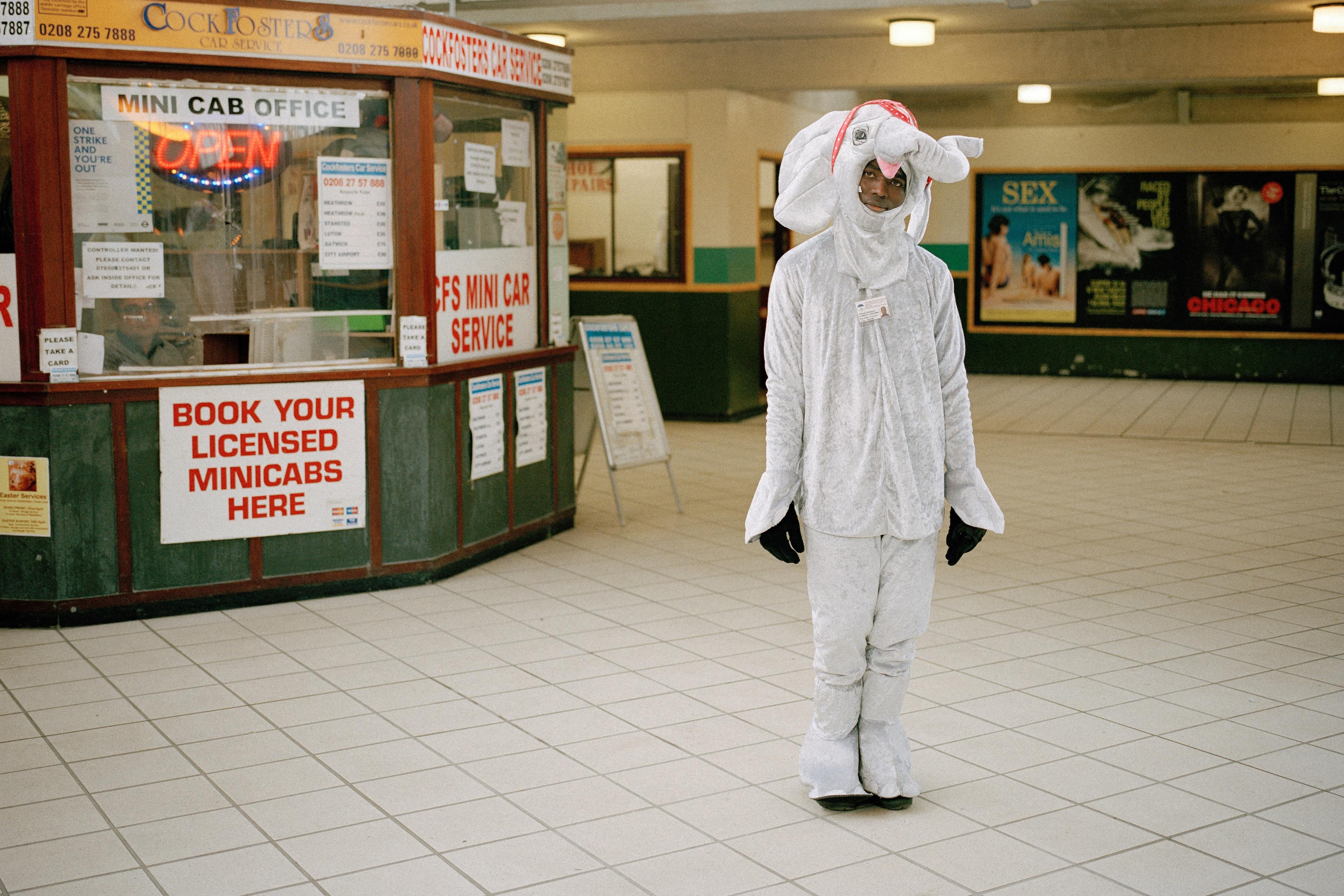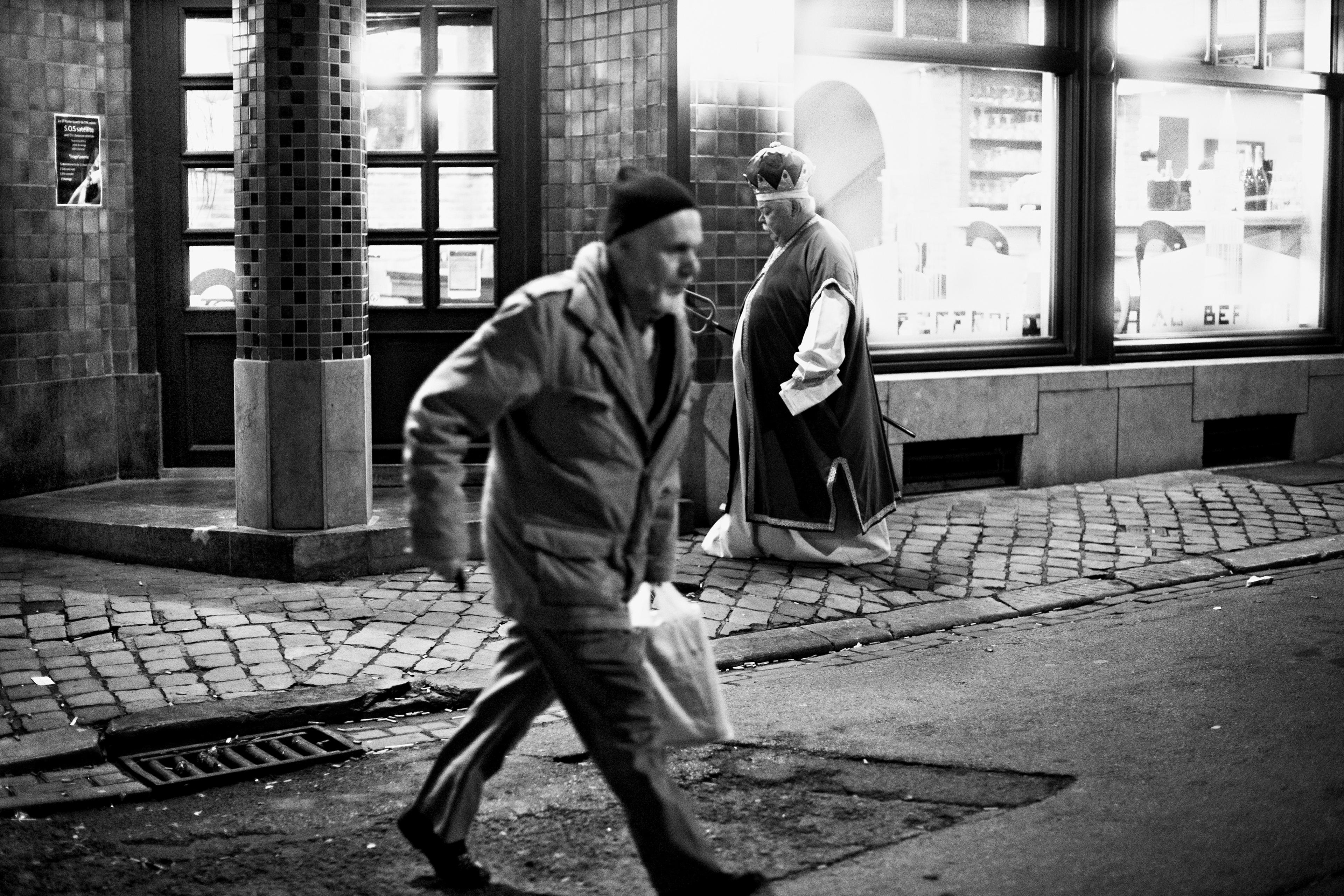Except for a painful one-year stint as a high-school teacher of philosophy in his native Romania, Emil Cioran never had a real job. ‘I avoided at any price the humiliation of a career,’ he observed toward the end of his life. ‘I preferred to live like a parasite [rather] than to destroy myself by keeping a job.’ When he chose to move to France, in 1937, it mattered to him that Paris was ‘the only city in the world where you could be poor without being ashamed of it, without complications, without dramas.’
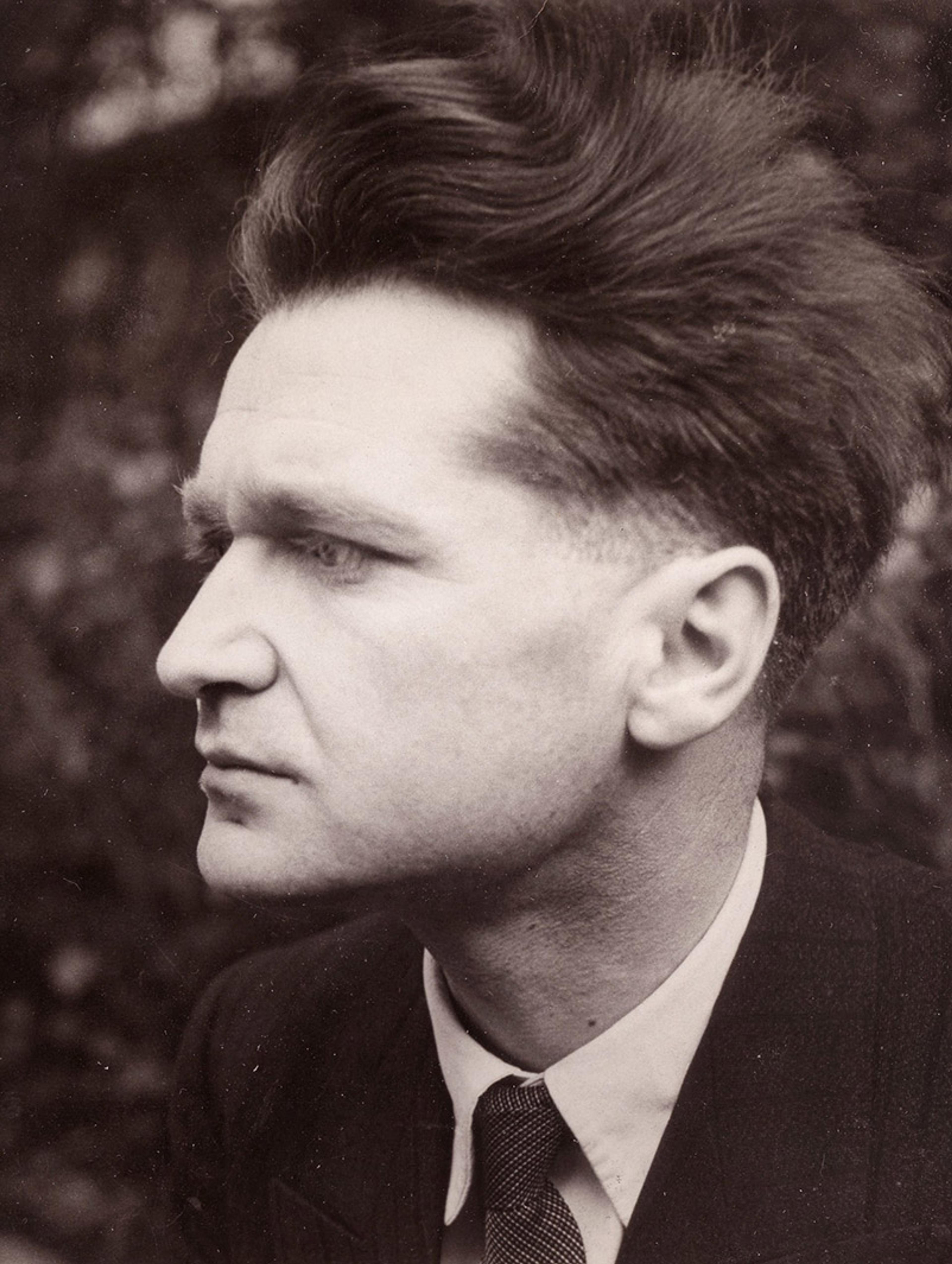
Emil Cioran photographed in France, 1957. Courtesy Wikipedia
Like his ancient predecessor, the Cynic Diogenes of Sinope, Cioran turned his poverty into a badge of philosophical honour. For the most pressing needs of his body, he would rely on the kindness of strangers and the generosity of friends. He wore other people’s hand-me-down clothes or entertained them with his wit and erudition in exchange for a meal. He would do anything, except take a proper job.
Doing nothing in a world where everybody seemed busy doing something – anything – struck Cioran as the only lifestyle worth pursuing and defending. A life devoid of action and practical ambitions, of distractions and busyness, is a life in which room has been made for meaning: ‘Anything good comes from indolence, from our incapacity of taking action, executing our projects and plans,’ Cioran wrote. And he behaved accordingly. When a journalist once asked him about his writerly routines, his answer was candour itself: ‘Most of the time I don’t do anything. I am the idlest man in Paris … the only one who does less than I do is a whore without clients.’
Cioran may have been joking, but his idleness was serious business. It was an arduous lifetime project, into which he put his best efforts and which he served with complete dedication. He took up this path not out of some particularly lazy disposition, but because of his unquenchable thirst for knowledge and understanding. ‘[T]o do nothing at all is the most difficult thing in the world, the most difficult and the most intellectual,’ Oscar Wilde observed decades before Cioran. If we are to understand the world, we have to stop acting upon it: we have to contemplate it. Contemplation and action are sworn enemies. Doing nothing brings forth an angle from which to look at everything with cosmic detachment. Idleness breeds depth of vision and a truly philosophical perspective.
Cioran gained his greatest insights not from books or fancy schools, but from walking aimlessly around Paris and from his nights of atrocious insomnia. He didn’t learn philosophy from his professors, but from his conversations with beggars, drunkards and sex workers. Walking in the footsteps of other great idlers of the contemplative tradition – such as Herman Melville’s Bartleby or Ivan Goncharov’s Oblomov – Cioran was in a good position to explore the vast expanses of nothingness that precedes our coming into being and which will follow it. Looking the void in the face was his all-consuming job, even as he was jobless for most of his life.
Having thus received ‘the revelation of the universal insignificance’, Cioran decided that the best possible social existence would be a parasite’s life – a loser. In a meaningless world, he observed, ‘only one thing matters: learning to be the loser’. Embracing loserdom, making the most of it, becoming one with it, became the great project of his life. Cioran aspired to be a loser as single-mindedly and passionately as others aspire to make a name for themselves in business, academia or politics. For he realised early on that loserdom puts us in the best position to understand how society works, and how it can surreptitiously turn our sociality into a form of self-enslavement. Most important of all, loserdom gives us the key to life’s best-guarded secret: at its core, the world – and we in it – is nothing but a failed project. Let me elaborate.
We fail all the time, in things large and small, yet our biggest failure may be that, as a rule, we don’t understand failure. And since we are not equipped to think about it, we can’t grasp its broader significance in our lives. A long evolutionary history has hardwired us to go blindly for whatever increases our chances of survival in the world, and therefore to chase immediate success. Brooding over failure, just as brooding over our finitude and mortality, doesn’t improve our chances of survival. Failure is the sudden irruption of nothingness in the midst of existence, and contemplating nothingness, while spiritually enlightening, doesn’t make much evolutionary sense. That’s why when failure happens – and it happens all the time – we instinctively tend to move on, without paying much heed or studying it in depth. This must be one of failure’s sweetest victories over us: on a deep level, we are designed to fail, and to fail badly (including our final failure: physical annihilation), and yet we are conditioned to remain blissfully unaware of failure’s darker message because our thinking can’t come to terms with it, just as it can’t come to terms with death itself.
Take the Beckettian quote about failing better, which self-help gurus, entrepreneurs-turned-spiritual-masters and other ‘life hackers’ repeat with abandon. Nothing is easier, if you listen to these sages, than to stumble upon spectacular achievements after experiencing disaster. On this view, failure is always pregnant with fulfilment, like a quarrel between lovers, which makes their eventual reconciliation all the sweeter – a little trick meant to spice up an already grand relationship. What these people always fail to mention, however, is what comes right after their favourite failure quote. For there is, for Samuel Beckett, something even better than failing better: failing worse. Going down and going under. Capitulation. Looking for an exit. Expiration. Here’s the larger context of his novella Worstward Ho (1983), which, as a rule, is conveniently left out: ‘Try again. Fail again. Better again. Or better worse. Fail worse again. Still worse again. Till sick for good. Throw up for good.’ Failure doesn’t necessarily lead to success, but to even more failure – abject, painful, unbearable failure. Did I mention that Beckett was Cioran’s friend? ‘Amidst your ruins I feel at home,’ Beckett wrote to him once.
This sugarcoating industry has turned life in modern society into a highly artificial affair
This sugarcoating of failure is part of a larger societal process. Everything that is unpleasant, disturbing, depressing in our culture is neutralised, sterilised and promptly taken out of view. Not so much for mental health reasons as for economic and social ones. To be productive members of society, to be able to make large amounts of money and to spend even more, to take loans and to pay them back with interest, we need to be hooked to a ‘positive outlook’. Capitalism doesn’t thrive on loners, depressives and metaphysicians. No respectable bank will lend money to a client today who may snap and go Henry David Thoreau tomorrow.
Navel-gazers can be dangerous elements. And so can philosophical nihilists. Should their numbers be left unchecked, they could undermine even the most industrious of communities. That’s why such antisocial tendencies must be watched closely and weeded out as needed. An impressive army of therapists, wellbeing coaches, yoga instructors, self-help experts, entertainers, educators, entrepreneurs and other charitable souls is deployed to make sure that we don’t ever stumble upon the dark side of existence, let alone look the void in the face, as Cioran used to. This is problematic even when it comes to us through the mediation of art or literature. The great books that explore the abyss of the human soul (the mediocre ones never go there) now come with ‘trigger warnings’. Inhaling serious literature is apparently as dangerous as smoking. Granted, this sugarcoating industry has turned life in modern society into a highly artificial affair and largely a mockery, but most people don’t seem to mind. For mindlessness is another important dimension of modern life.
Such is Cioran’s savage wisdom – or could have been. You can’t miss the irony. If you are to listen to him, he ‘could not do anything serious ’ all his life, and yet in his books he offered some of the most serious insights into the alienated condition of modern life, under which we all labour.
Author’s translations of Entretiens (1995) and Itinerariile unei vieţi (1995).
